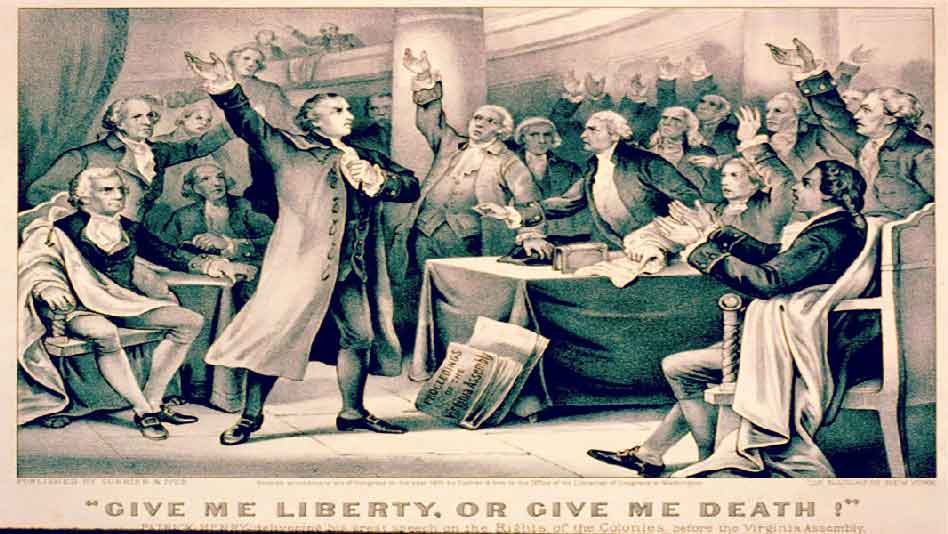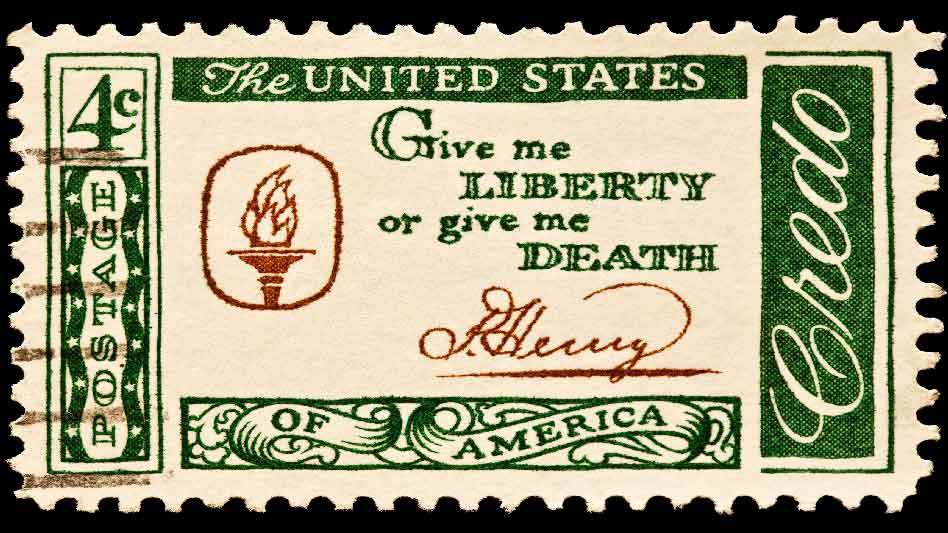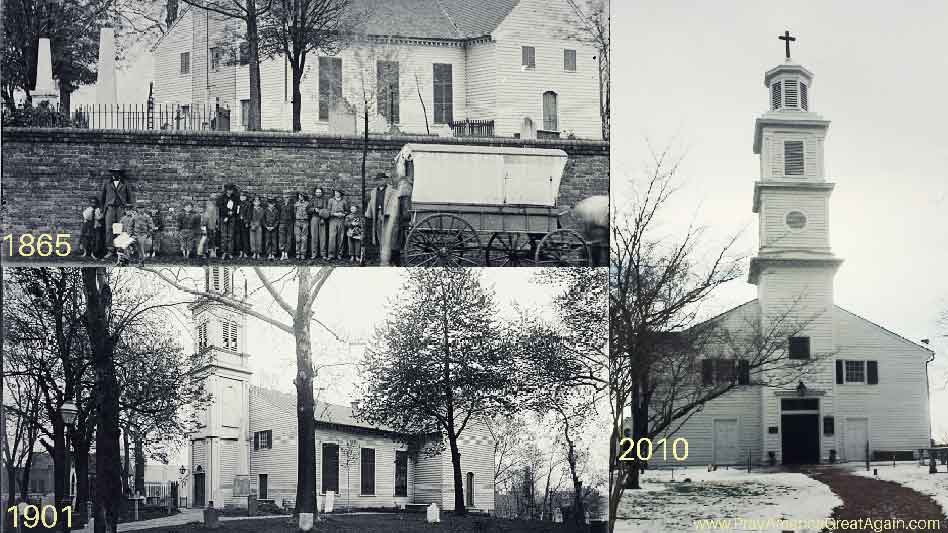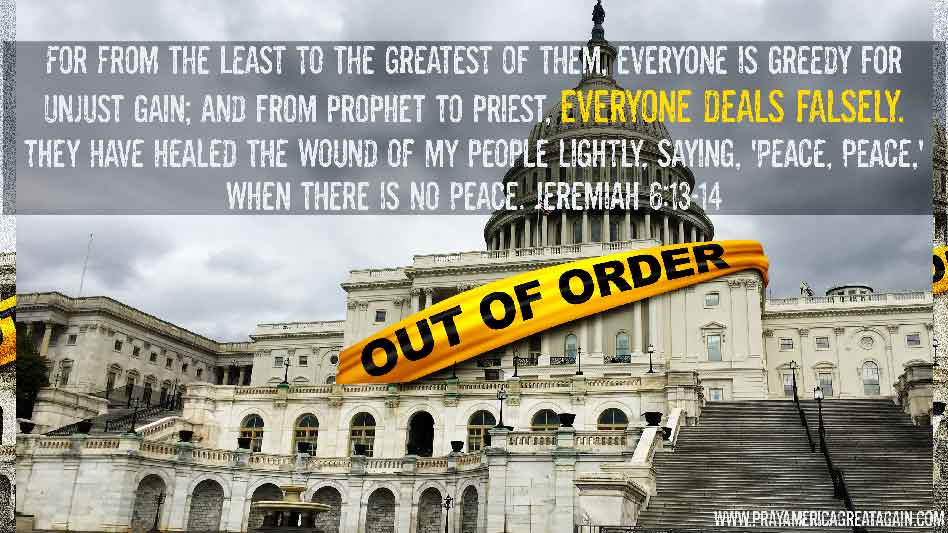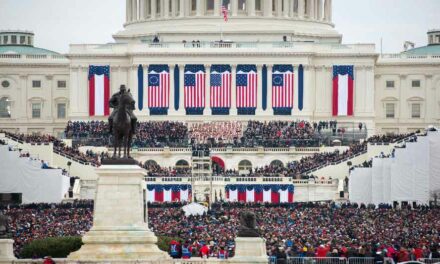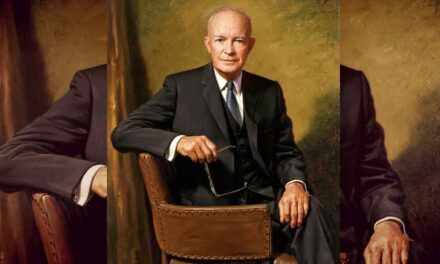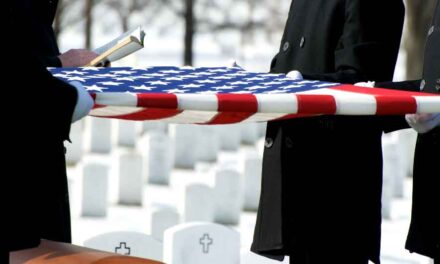Patrick Henry: “Give Me Liberty Or Give Me Death” March 23, 1775
The official Journal of the Proceedings of the Second Virginia Convention which convened on March 20th, 1775, contains three entries explaining its success.
1 Monday, March 20, 1775. Resolved, that the Reverend Mr. Selden be desired to read prayers to the Convention, every morning, at 9 o’clock.
2 Saturday, March 25, 1775. Adjourned till Monday, 1 o’clock.
3 Monday, March 27, 1775. Resolved, that the thanks of this Convention be presented to the Rev. Mr. Selden, for performing divine service, and for his seasonable and excellent sermon yesterday.
The importance of this Convention for the Founding of America, its liberty, its great documents, its courage to stand up to British tyranny, and moreover, its will to win, cannot be overstated.
The Second Virginia Convention’s prayers and worship were not a Revolutionary Era one-off. Prayer was fundamental to America’s Founding, from John Winthrop and the first settlers until the Revolution was finally over. And thereafter, for the most part up through the early 1960’s (300+ years!). America was founded as a Christian nation and is still the only Christian nation in the world.
The decline in public prayer showed its beastly head in 1962 when the Supreme Court (still reeling from the liberal depravity of an FDR administration), in Engel v. Vitale, held prayer in public schools to be unconstitutional. And in 1963, a central government agency murdered a President. In 2021, an illegitimate regime occupied the White House (though the first was possibly in 2012) heralding trans rights for minors, abortion after birth, men in girls’ bathrooms, and innumerable other atrocities.
Since January 2021, the regime’s puppeteers have been engaged in an irregular Marxist revolution. But take heart! Our nation has fought against tyranny before.
In order to win our nation back, prayer must become fundamental again. First, we must repent on behalf of the nation for its many, many sins. Then, ask God to raise up leaders, church leaders, who will preach a fiery Gospel. Pray for the church to have a greater influence in the world. Pray for a colossal awakening, an outpouring of the Holy Spirit, courage, bravery, boldness, zealousness, all power from on high, to provide the means for God’s people to proclaim Jesus Christ in word and deed.
The Marxists are evil, not an adjective, but a noun. The devil must be resisted, and based on the authority of God’s Word, he will flee (James 4:7)!
Submit yourselves therefore to God. Resist the devil, and he will flee from you. Draw near to God, and He will draw near to you. James 4:7-8
And always keep in mind, we have already won (Revelation 12:11).
PAGA prays that this synopsis of Patrick Henry’s life and fiery speech will stir your heart to be courageous, stand your ground (Ephesians 6:13), and stand firm.
Events Leading Up to Patrick Henry’s Give Me Liberty Or Give Me Death Speech
Within eleven short years, the imperial government of Britain imposed multiple acts against the American colonies.
1763
- February – French and Indian War, or Seven Years War; important because Britain incurred a great amount of war debt
- October – Proclamation of 1763 banned moving westward
1764
- April – Sugar Act
- April – Currency Act
1765
- March – Stamp Act (to raise money to help pay down the war debt and finance the British army’s presence in the Americas. First internal tax directly levied on American colonists.)
- May – Quartering Act of 1765
- May – Virginia passes Patrick Henry’s Stamp Act Resolves; these made Patrick Henry famous throughout the colonies.
1766
- March – Parliament repeals Stamp Act and passes the Declaratory Act
1767
- June – Townshend Acts; taxed goods imported to the colonies
1768
- June – British Troops sent to Boston
- October – British fleet arrives
1770
- March – Boston Massacre
- April – Parliament repeals the Townshend duties, with the exception of tax on tea
1772
- November – Boston citizens publish The Rights of the Colonists and a List of British violations of the Colonists’ Rights
- November – Boston Committee of Correspondence begins
1773
- March – Virginia hosts intercolonial Committee of Correspondence
- May – British Tea Act
- December – Boston Tea Party
1774
- In response to the Boston Tea Party, the British Parliament passed four acts known collectively as the Coercive Acts, but in America they were called the Intolerable Acts:
- March – Boston Port Act; this one united colonies again the British
- May – Massachusetts Government Act
- May – Administration of Justice Act
- June – Quartering Act
- June – Quebec Act
- August – First Virginia Convention meets in Williamsburg
- September – First Continental Congress meets in Philadelphia
1775
- March – Second Virginia Convention meets in Richmond; Patrick Henry delivers his famous speech
In the historical context of Britain’s increasing tyranny, Patrick Henry made his famous declaration, “Give me liberty or give me death.” The proclamation captured the spirit of the times and became the battle cry of the American Revolution.
Patrick Henry’s Readiness For Such A Time As This
Patrick Henry’s political career began in December 1763 with a victory in a controversy known as the Parsons’ Cause. This whole affair brought attention to the nature of British authority in the colonies.
In 1765, Henry won a seat in the House of Burgesses. There he authored a list of Stamp Act Resolves against England’s Stamp Act. These were published throughout the colonies and were widely popular with the people. In modern vernacular, the resolves went viral. This work established Henry among the leaders of the American Revolution. In a short time, Henry had gained a reputation as an uncompromising opponent of imperial policy, aka “the establishment”.
Henry went on to serve as a member of the first Virginia Committee of Correspondence, which facilitated inter-colonial cooperation. He served as one of Virginia’s delegate to the First Continental Congress in 1774 and the Second Continental Congress which convened on May 10, 1775.
The U.S. Postal Department chose Patrick Henry’s famous quote “Give me liberty or give me death” as one of six feature quotations from six heroes of the Republic. These six comprised the America Credo Series of 1960-1961.
Irony was never lost on Henry who probably had a good chuckle over this.
The Second Virginia Convention
Just prior to the Second Continental Congress, the Virginia delegates were divided between those who wanted a peaceful solution to the dispute with the British monarchy and those who were ready to prepare for war. By this time British troops sent to quell colonial independence had been around for almost eight years. Boston had been the epicenter of brute force asserted by the British Empire. But as tensions increasingly flared, the other colonies knew they must have a game plan.
On March 23, 1775, the Second Virginia Convention met at St. John’s Church in Richmond. The meeting’s purpose was to discuss Virginia’s strategy against the British. It was here that Patrick Henry delivered his most famous speech.
1865 and 1901 National Archives
2010 Skyring at the English-language Wikipedia
The Historic St. John’s Church website writes:
The convention ended on 27 March and less than a month later on 19 April the first shots of the American Revolution were fired at Lexington and Concord. Henry’s speech was prophetic and has been credited as “the signal utterance of the Revolution, a speech whose eloquent and ringing defense of liberty best expressed the colonials’ emerging will to independence.”
Patrick Henry – Give Me Liberty Or Give Me Death
No man thinks more highly than I do, of the patriotism, as well as abilities, of the very worthy gentlemen who just addressed the house. But different men often see the same subject in different lights.
Therefore, I hope it will not be thought disrespectful to these gentlemen, if, entertaining as I do, opinions of a character very opposite to theirs, should speak forth my sentiments freely, and without reserve. This is no time for ceremony. The question before the house is one of awful moment to this country. For my own part, I consider it as nothing less than a question of freedom or slavery. And in proportion to the magnitude of the subject, ought to be the freedom of the debate. It is only in this way that we can hope to arrive at truth, and fulfil the great responsibility which we hold to God and our country. Should I keep back my opinions, at such a time, through fear of giving offence, I should consider myself as guilty of treason towards my country, and of an act of disloyalty toward the majesty of Heaven, which I revere above all earthly kings.
Mr. President, it is natural to man to indulge in the illusions of hope. We are apt to shut our eyes against a painful truth—and listen to the song of that syren [British spelling of siren], till she transforms us into beasts. Is it the part of wise men, engaged in a great and arduous struggle for liberty? Were we disposed to be of the number of those, who having eyes, see not, and having ears, hear not, the things which so nearly concern our temporal salvation? For my part, whatever anguish of spirit it might cost, I am willing to know the whole truth to know the worst, and to provide for it.
I have but one lamp by which my feet are guided: and that is the lamp of experience. I know of no way of judging the future, but by the past. And judging by the past, I wish to know what there had been in the conduct of the British ministry for the last ten years, to justify those hopes with which gentlemen had been pleased to solace themselves and the house? Is it that insidious smile with which our petition has been lately received? Trust it not, sir; it will prove a snare to your feet. Suffer not yourselves to be betrayed with a kiss. Ask yourselves how this gracious reception of our petition, comports with those warlike preparations which cover our waters and darken our land? Are fleets and armies necessary to a work of love and reconciliation? Have we shown ourselves so unwilling to be reconciled, that force must be called in to win back our love? Let us not deceive ourselves, sir. These are the implements of war and subjugation—the last arguments to which kings resort. I ask gentlemen, sir, what means this martial array, if its purpose be not to force us to submission? Can gentlemen assign any other possible motive for it? Has Great Britain any enemy in this quarter of the world, to call for all this accumulation of navies and armies? No, sir: she has none. They are meant for us: they can be meant for no other. They are sent over to bind and rivet upon us those chains, which the British ministry have been so long forging. And what have we to oppose to them? Shall we try argument? Sir, we have been trying that for the last ten years. Have we any thing new to offer upon the subject? Nothing. We have held the subject up in every light of which it is capable; but it has been all in vain. Shall we resort to entreaty and humble supplication? What terms shall we find, which have not been already exhausted? Let us not, I beseech you, sir, deceive ourselves longer.
Sir, we have done every thing that could be done, to avert the storm which is now coming on. We have petitioned—we have remonstrated—we have supplicated—we have prostrated ourselves before the throne, and have implored its interposition to arrest the tyrannical hands of the ministry and parliament. Our petitions have been slighted; our remonstrances have produced additional violence and insult; our supplications have been disregarded; and we have been spurned, with contempt, from the foot of the throne. In vain, after these things, may we indulge the fond hope of peace and reconciliation. There is no longer any room for hope. If we wish to be free—if we mean to preserve inviolate those inestimable privileges for which we have been so long contending—if we mean not basely to abandon the noble struggle in which we have been so long engaged, and which we have pledged ourselves never to abandon, until the glorious object of our contest shall be obtained—we must fight! I repeat it, sir; we must fight!! An appeal to arms and to the God of Hosts, is all that is left us!”
They tell us, sir, that we are weak—unable to cope with so formidable an adversary. But when shall we be stronger? Will it be the next week, or the next year? Will it be when we are totally disarmed; and when a British guard shall be stationed in every house? Shall we gather strength by irresolution and inaction? Shall we acquire the means of effectual resistance, by lying supinely on our back, and hugging the delusive phantom of hope, until our enemies shall have bound us, hand and foot? Sir, we are not weak, if we make a proper use of those means which the God of nature hath placed in our power. Three millions of people, armed in the holy cause of liberty, and in such a country as that which we possess, are invincible by any force which our enemy can send against us. Besides, sir, we shall not fight our battles alone. There is a just God who presides over the destinies of nations; and who will raise up friends to fight our battles for us. The battle, sir, is not to the strong alone; it is to the vigilant, the active, the brave. Besides, sir, we have no election. If we were base enough to desire it, it is now too late to retire from the contest. There is no retreat, but in submission and slavery! Our chains are forged. Their clanking may be heard on the plains of Boston! The war is inevitable—and let it come!! I repeat it, sir; let it come!!!
It is in vain, sir, to extenuate the matter. Gentlemen may cry, peace, peace—but there is no peace. The war is actually begun! The next gale that sweeps from the north, will bring to our ears the clash of resounding arms! Our brethren are already in the field! Why stand we here idle? What is it that gentlemen wish? What would they have? Is life so dear; or peace so sweet, as to be purchased at the price of chains, and slavery? Forbid it, Almighty God! I know not what course others may take; but as for me, give me liberty, or give me death!
“The War Is Inevitable—And Let It Come!!”
Patrick Henry’s speech has been called prophetic. And rightly so. The shot heard round the world in Lexington, Massachusetts took place less than 4 weeks later, April 19, 1775.
More Info About Patrick Henry; A Remarkable Revolutionary Hero
Patrick Henry National Memorial – Red Hill, Patrick Henry’s last home and burial site
Patrick Henry Full Biography – from Red Hill
Journal of the Proceedings of the Convention Held at Richmond in the County of Henrico on the 20th Day of March 1775
Historic St John’s Church – site of Second Virginia Convention 1775
Patrick Henry’s famous speech on Historic St. John’s Church website
About The Text Of Patrick Henry’s Speech
Henry spoke before the Convention without notes. No extant copies of his famous speech exist. The only known “transcript” was reconstructed in an 1817 biography, “Sketches of the Life and Character of Patrick Henry,” by William Wirt of Richmond, Virginia. In the book, the speech is narrated, i.e. “and he held out his hand, and said, …”. In the text above, the narrative parts have been removed so it can be read as a speech. The book’s narrated speech can be found here on pages 119-124.
How did Wirt come to author this account of Patrick Henry’s life? And famous speech? In 1800 Wirt became a clerk of the Virginia House of Delegates. In 1802 he became chancellor of the Eastern District of Virginia. In 1807 he was appointed by President Jefferson as the prosecuting attorney in the trial of Aaron Burr. In 1817 he became Attorney General under President Monroe.
Being a Virginia political insider, no doubt Mr. Wirt heard many people recount the fiery speeches of Patrick Henry. Among those present at the “Give me liberty or give me death” speech were George Washington and Thomas Jefferson, and others who would join the cause of liberty against British tyranny.
Patrick Henry demonstrates a command of God’s Word through many skillful allusions to Scripture. One such case is Jeremiah 6:11-12, “Gentlemen may cry, peace, peace—but there is no peace. The war is actually begun!”
In Jeremiah’s time, though God had warned the people time and again of an invading army, false prophets continually proclaimed that things were fine, “Peace, peace!” Judah need not fear the threat of exile (submission and slavery) or people taking over their homes. They had the land, the temple, i.e. the hopes of their peace. Yet God says disaster is coming upon this people, “because they have not paid attention to my words…” (Jeremiah 6:19). Likewise, Patrick Henry reprimands his fellow convention goers for not paying attention to what Britain is doing. Judah had its false prophets. The colonists had those loyal to Britain who maintained hope that England would never take up arms against them.
Even in our day, one side claims, “Things are fine! The economy is great! The border is closed!” But like Judah before the Babylonian exile, and the colonies before the Revolution, we too sit on the precipice of precarious times. As a people, we must pay attention; as a nation, we must repent; as people of the Triune God, we must turn wholeheartedly to God; and as the church, we must proclaim the eternal truth of the Gospel of Jesus Christ. “And I, when I am lifted up from the earth, will draw all people to myself” (John 12:32).

